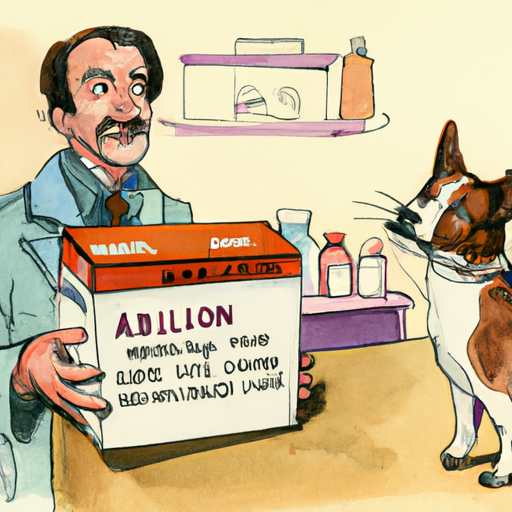Understanding Albon and Its Use in Veterinary Medicine
Firstly, it is essential to understand that Albon (Sulfadimethoxine) is a commonly used antibiotic in veterinary medicine. It’s typically administered to dogs and cats to treat a variety of bacterial infections, including those affecting the respiratory and urinary tracts, soft tissues, and the gastrointestinal system.
Albon works by inhibiting the growth and multiplication of bacteria. It does this by preventing the bacteria from synthesizing folic acid, a nutrient they need to grow and reproduce. Without it, the bacteria can’t continue to spread, allowing your dog’s immune system to eliminate the existing bacteria.
When Should Your Dog Be Given Albon?
Secondly, you might be wondering when it’s appropriate to give your dog Albon. The answer largely depends on the specific bacterial infection your dog has contracted.
- Respiratory Tract Infections: These can be caused by bacteria like Streptococcus and Escherichia coli.
- Urinary Tract Infections: Often caused by E. coli or Proteus mirabilis.
- Soft Tissue Infections: These can be due to a variety of bacteria including Staphylococcus and Streptococcus.
- Gastrointestinal Infections: Often caused by Salmonella or E. coli.
Please remember, Albon should only be administered under the guidance of a qualified veterinarian.
The Dosage and Side Effects of Albon
Thirdly, proper dosage is crucial when giving your dog Albon. The typical dosage is 25 mg/lb (55 mg/kg) for the initial dose, followed by 12.5 mg/lb (27.5 mg/kg) every 24 hours thereafter. The duration of treatment will depend on the type and severity of the infection.
However, like all medications, Albon can potentially cause side effects. These may include:
- Dry eyes
- Loss of appetite
- Vomiting
- Diarrhea
- Fever
- Joint inflammation
If your dog exhibits any of these symptoms, immediately contact your vet.
Albon vs. Other Antibiotics
Fourthly, let’s compare Albon to other common antibiotics used in veterinary medicine.
| Antibiotic | Uses | Side Effects |
|---|---|---|
| Albon | Respiratory, urinary tract, soft tissue, gastrointestinal infections | Dry eyes, loss of appetite, vomiting, diarrhea, fever, joint inflammation |
| Amoxicillin | Skin and ear infections, urinary tract infections, respiratory infections | Allergic reactions, loss of appetite, diarrhea, vomiting |
| Cephalexin | Skin infections, urinary tract infections, bone infections | Allergic reactions, vomiting, diarrhea, lack of energy |
This table is not exhaustive, and your vet will determine the best antibiotic for your dog’s specific needs.
Keeping Your Dog Healthy
Finally, while Albon can be an effective treatment for bacterial infections, the best medicine is prevention. Keep your dog healthy with regular vet checkups, a balanced diet, and plenty of exercise. Remember, your dog can’t tell you when they feel unwell, so it’s up to you to monitor their health and behavior.
Frequently Asked Questions
Q1: Can Albon be used for puppies?
Yes, Albon can be safely used in puppies. However, the dosage may differ, so always follow your vet’s instructions.
Q2: Can my dog overdose on Albon?
Yes, like any medication, it’s possible for a dog to overdose on Albon. If you suspect this has occurred, contact your vet immediately.
Q3: Can humans take Albon?
No, Albon is an antibiotic designed for veterinary use. It should not be ingested by humans.



